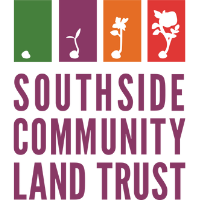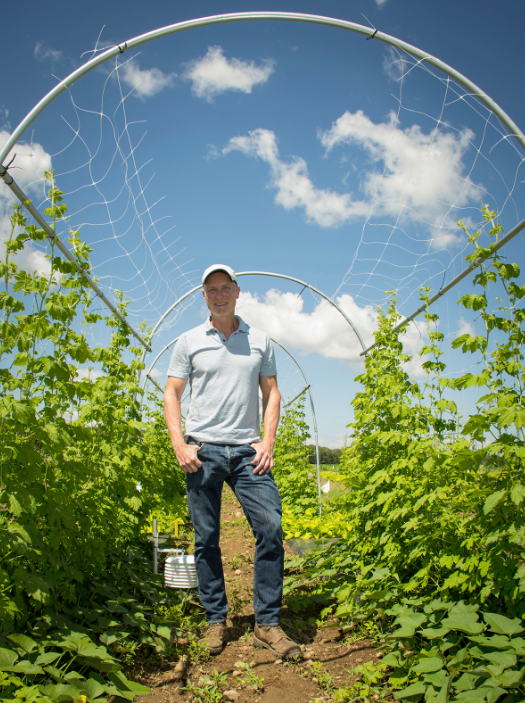KINGSTON, R.I. – August 1, 2017 – John Taylor is intrigued by the methods that ethnic communities use to grow their native vegetables in urban settings in the United States. So the University of Rhode Island scientist is testing some of those strategies to see if the methods could increase crop yields of more conventional vegetables.
“The U.S. has an increasingly diverse population, and for many immigrants, continuing their food ways is an important way to reproduce their culture,” said Taylor, URI assistant professor of plant sciences, who earned his doctorate studying ethnic home gardens in Chicago. “The way some ethnic groups grow their crops is often quite different from how other people grow those same crops.
”Taylor is focusing his initial studies on growing several varieties of amaranth, a leafy vegetable popular among African, Asian and Caribbean cultures, and bitter melon, a warty cucumber-shaped fruit with medicinal values favored in India and Southeast Asia. He is growing the two, along with a sweet potato variety grown for its leaves, all together in the same space, a practice called polyculture.
“In polyculture, you’re growing multiple species together to get more production from a unit of area compared to growing those crops in monoculture,” he said. “It’s a way to maximize the use of space. In many Chinese-origin household gardens, they sometimes double production because they have a vine crop growing vertically on a trellis with a leafy ground layer below it. It helps the household be more food secure.
”In his experiments, Taylor is growing amaranth, bitter melon and sweet potato in various combinations in two 200-foot rows and in 25 eight-by-ten-foot plots at the URI agronomy fields.
“Land is always at a premium,” Taylor said. “I want to use this as a model for growing other more conventional crops. The same strategy could be used for growing cucumbers, squash and pole beans, for example.
”Despite the wet spring, his crops are growing well. The bitter melon began blooming last week, and he expects to start harvesting amaranth and sweet potato leaves soon. He will document the yield of each crop and compare it to the yield of the same crops grown in monoculture.
“We hope we’ll find that the polycultures yield more than the monocultures,” said Taylor. “Then next year we’ll play with the system a bit, trying different densities of plants, different arrangements of plants, to see how we can improve the system. And then we’ll start using those results as a model for other more conventional vegetables.
”In addition to his polyculture studies, Taylor is growing 14 different varieties of bitter melon to determine which grow best in local conditions.
“I probably have more bitter melon in production than in all of Providence,” he joked.
Taylor will share the results of his work with various ethnic communities in Rhode Island. He is already doing outreach to local gardeners through the Southside Community Land Trust in Providence.
# # #
PHOTO CAPTION: URI Assistant Professor John Taylor poses in the URI agronomy fields with his polyculture experiment using amaranth, bitter melon and sweet potatoes. (Photo by Nora Lewis)
Click here to read the original article on URI’s website.



Post a comment